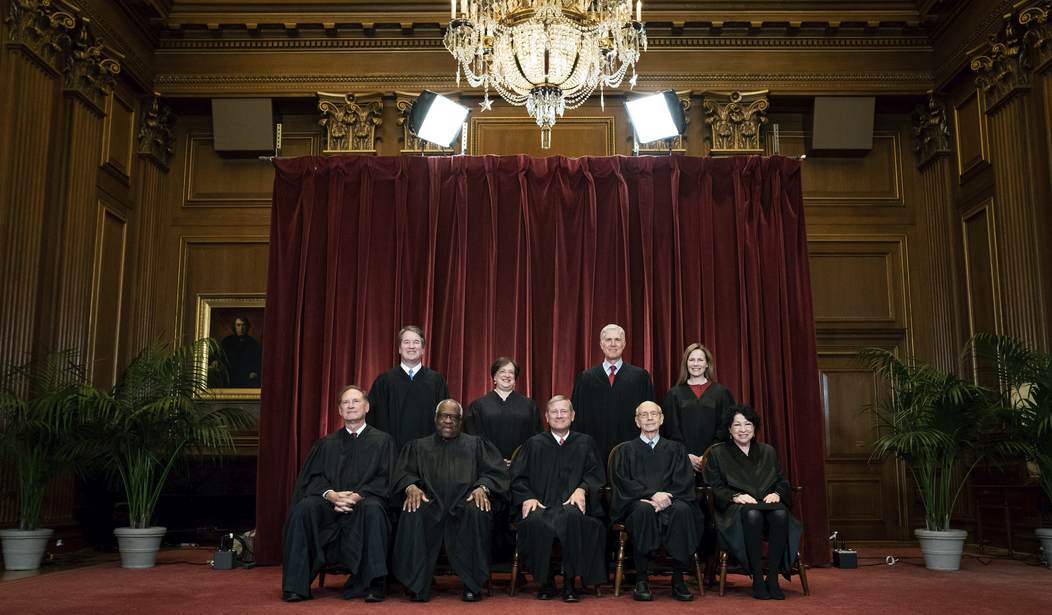Arizona Democrats had sought to throw out two voting integrity laws passed in that state in 2016. Those laws have been used as a model for new laws passed in other states since the 2020 elections, so the precedent of this case could prove important. One of the laws states that only the voter, a member of their family, or their caregiver can deliver a completed ballot. The other law requires election officials to reject ballots cast in the wrong precinct. Today, the Supreme Court announced that they found the laws to be constitutional on a 6-3 vote. Be sure to note the spin that NBC News applies to their coverage of this story.
The Supreme Court on Thursday upheld two election laws in the 2020 battleground state of Arizona that challengers said make it harder for minorities to vote.
The case was an important test for what’s left of one of the nation’s most important civil rights laws, the Voting Rights Act of 1965, which the Supreme Court scaled back in 2013. A remaining provision allows lawsuits claiming that voting changes would put minority voters at a disadvantage in electing candidates of their choice.
Civil rights groups were hoping the Supreme Court would use the Arizona case to strengthen their ability to challenge the dozens of post-2020 voting restrictions imposed by Republican legislatures in the wake of Donald Trump’s defeat.
We’re once again seeing the media adopting the insulting language of the Democrats every time they don’t like a new election law, saying that the laws “make it harder for minorities to vote.” I’ve yet to hear a single person explain that rationale coherently.
In the Arizona examples, the first law defines who can legally take a completed ballot to be submitted, limiting that choice to the voter themselves, their family members, or a caregiver. Are the plaintiffs somehow claiming that minority voters don’t have family members or the ability to get to their precinct? The second law rejects ballots cast in the wrong precinct. I’m sure that happens from time to time, but the assumption being made by the plaintiffs seems to be that minority voters aren’t smart enough to locate the correct precinct while their white counterparts can manage the task. That’s not a very good look.
Regarding the second law, the plaintiffs had also claimed that officials moved polling locations more often in minority districts, leading to confusion or mistakes. There are already rules in place, however, describing when and how polling locations can be changed. If they have proof that election officials have been violating those laws, the answer isn’t to scrap this law. It’s to investigate and arrest the people doing the switching.
What we seem to be seeing here is another example of the Supreme Court sticking to their traditional precedent of leaving the specifics of voting rules up to the individual states as long as they don’t prove to be discriminatory. That’s probably the reason that the Democrats continually accuse Republican officials of “discrimination” in crafting voting laws. But whether it’s the rule concerning who can deliver a ballot (which was passed to cut down on ballot harvesting) or a requirement to vote in your own precinct, those laws apply equally to everyone, regardless of race, gender or any other demographic.
Now that there are challenges bubbling up over new voting laws in Georgia and many other states, today’s decision will probably prove important. The lower courts will need to consider this case as precedent when hearing the others.








Join the conversation as a VIP Member